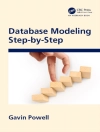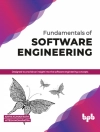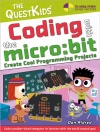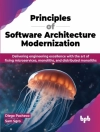Intelligent information and database systems are two closely related and we- established subfields of modern computer science. They focus on the integration of artificial intelligence and classic database technologies in order to create the class of next generation information systems. The major target of this new gene- tion of systems is to provide end-users with intelligent behavior: simple and/or advanced learning, problem solving, uncertain and certain reasoning, se- organization, cooperation, etc. Such intelligent abilities are implemented in classic information systems to make them autonomous and user oriented, in particular when advanced problems of multimedia information and knowledge discovery, access, retrieval and manipulation are to be solved in the context of large, distr- uted and heterogeneous environments. It means that intelligent knowledge-based information and database systems are used to solve basic problems of large coll- tions management, carry out knowledge discovery from large data collections, reason about information under uncertain conditions, support users in their for- lation of complex queries etc. Topics discussed in this volume include but are not limited to the foundations and principles of data, information, and knowledge models, methodologies for intelligent information and database systems analysis, design, implementation, validation, maintenance and evolution.
Inhaltsverzeichnis
Information Retrieval and Management.- A Construction of Hierarchical Rough Set Approximations in Information Systems Using Dependency of Attributes.- Percentages of Rows Read by Queries as an Operational Database Quality Indicator.- Question Semantic Analysis in Vietnamese QA System.- Ontology-Based Query Expansion with Latently Related Named Entities for Semantic Text Search.- Indexing Spatial Objects in Stream Data Warehouse.- Real Time Measurement and Visualization of ECG on Mobile Monitoring Stations of Biotelemetric System.- A Search Engine Log Analysis of Music-Related Web Searching.- Data Hiding Based on Compressed Dithering Images.- Reliable Improvement for Collective Intelligence on Thai Herbal Information.- Semantic Compression for Specialised Information Retrieval Systems.- Service Composition and User-Centered Approach.- Service Mining for Composite Service Discovery.- An Adaptive Grid-Based Approach to Location Privacy Preservation.- View Driven Federation of Choreographies.- Semantic Battlespace Data Mapping Using Tactical Symbology.- A Method for Scenario Modification in Intelligent E-Learning Systems Using Graph-Based Structure of Knowledge.- Development of the E-Learning System Supporting Online Education at the Polish-Japanese Institute of Information Technology.- Evolutionally Improved Quality of Intelligent Systems Following Their Users’ Point of View.- Data Mining and Knowledge Extraction.- Mining the Most Generalization Association Rules.- Structure of Set of Association Rules Based on Concept Lattice.- Some Novel Heuristics for Finding the Most Unusual Time Series Subsequences.- Using Rule Order Difference Criterion to Decide Whether to Update Class Association Rules.- An Integrated Approach for Exploring Path-Type Association Rules.- A Framework of Rough Clustering for Web Transactions.- Fuzzy Bayesian Belief Network for Analyzing Medical Track Record.- An Experiment Model of Grounded Theory and Chance Discovery for Scenario Exploration.- Computational Intelligence.- Using Tabu Search for Solving a High School Timetabling Problem.- Risk Management Evaluation Based on Elman Neural Network for Power Plant Construction Project.- A New Approach to Multi-criteria Decision Making (MCDM) Using the Fuzzy Binary Relation of the ELECTRE III Method and the Principles of the AHP Method.- A Routing Method Based on Cost Matrix in Ad Hoc Networks.- A Fusion Approach for Multi-criteria Evaluation.- Algorithmic Aspects of the Reachability of Conflicting Chip Firing Game.- Neurofuzzy Decision-Making Approach for the Next Day Portfolio Thai Stock Index Management Trading Strategies.












